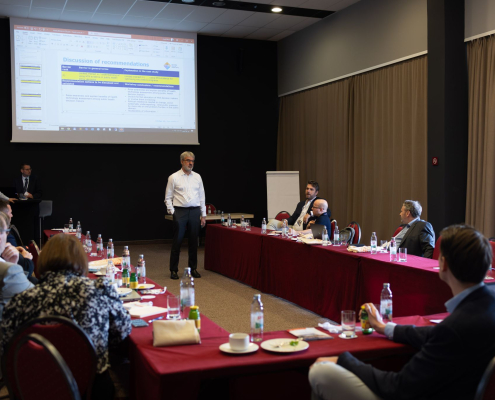In the last couple of months work package 3 – focusing on the value of vaccination in the older adult population – has focused on two key aspects.
Social contact study
The social contact study – conducted by the Center for Statistics at Hasselt University in Belgium – assessed the feasibility of various recruitment and survey methods to examine social contact behavior among individuals of different ages and health conditions in Flanders.
This study aimed to develop and test a protocol for investigating the detailed contact patterns of people aged 50 and older. The findings highlight the importance of understanding the variability in contact behavior, particularly the influence of age, social structure, and health status.
By providing crucial data for dynamic modeling and informing future research, this study enhances our comprehension of contact behavior and the prevention of infectious diseases. Similar research in other countries is necessary to better understand contact patterns and assess behavioral trends for future studies. We are currently preparing a scientific publication based on these findings.
Final phase
Additionally, we have entered the final phase of WP3, focusing on the development and application of our project outcomes in other European settings. Ensuring the successful transferability of health economic evaluations for infectious disease prevention to the broader European region requires detailed information, especially on the prevalence of frailty.
Following our initial publication in 2023 – Pitter, J.G., Zemplényi, A., Babarczy, B. et al. Frailty prevalence in 42 European countries by age and gender: development of the SHARE Frailty Atlas for Europe. GeroScience (2023) – WP3 partners Syreon, UMCH, and MiHA examined the effective application of the VITALO model in various contexts in the Netherlands, Hungary, and Serbia with the intend to contribute to improved health outcomes and better decision-making across Europe.
Workshop
During the 12th Adriatic and 8th Croatian Congress of Pharmacoeconomics and Outcomes Research in Lovran, we continued on this topic by organizing a workshop with the ValueDx project, involving prominent Central and Eastern European health policy and public health experts. We explored ways to enhance the transferability of economic models developed in EU-funded projects to lower-income European countries, identified key transferability barriers, and made recommendations to overcome these obstacles.
The team is currently working on a scientific publication based on this output.






